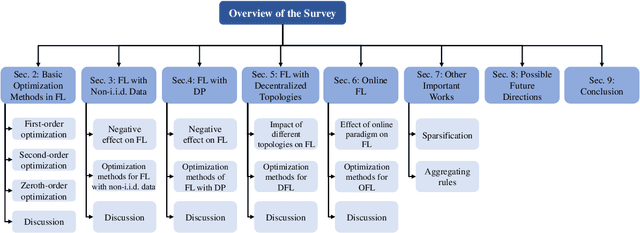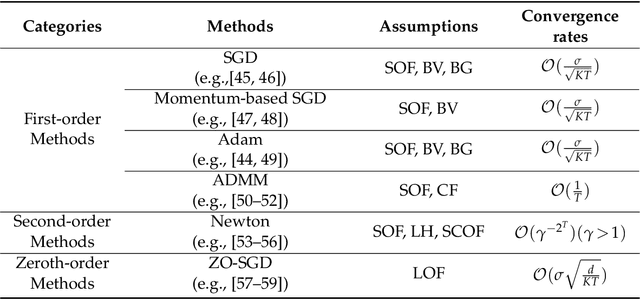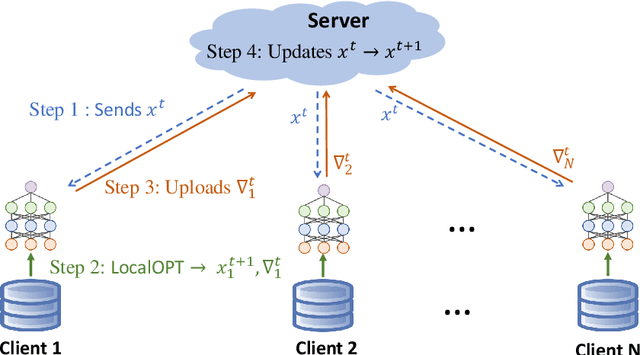Review of Mathematical Optimization in Federated Learning
Paper and Code
Dec 02, 2024



Federated Learning (FL) has been becoming a popular interdisciplinary research area in both applied mathematics and information sciences. Mathematically, FL aims to collaboratively optimize aggregate objective functions over distributed datasets while satisfying a variety of privacy and system constraints.Different from conventional distributed optimization methods, FL needs to address several specific issues (e.g., non-i.i.d. data distributions and differential private noises), which pose a set of new challenges in the problem formulation, algorithm design, and convergence analysis. In this paper, we will systematically review existing FL optimization research including their assumptions, formulations, methods, and theoretical results. Potential future directions are also discussed.
 Add to Chrome
Add to Chrome Add to Firefox
Add to Firefox Add to Edge
Add to Edge